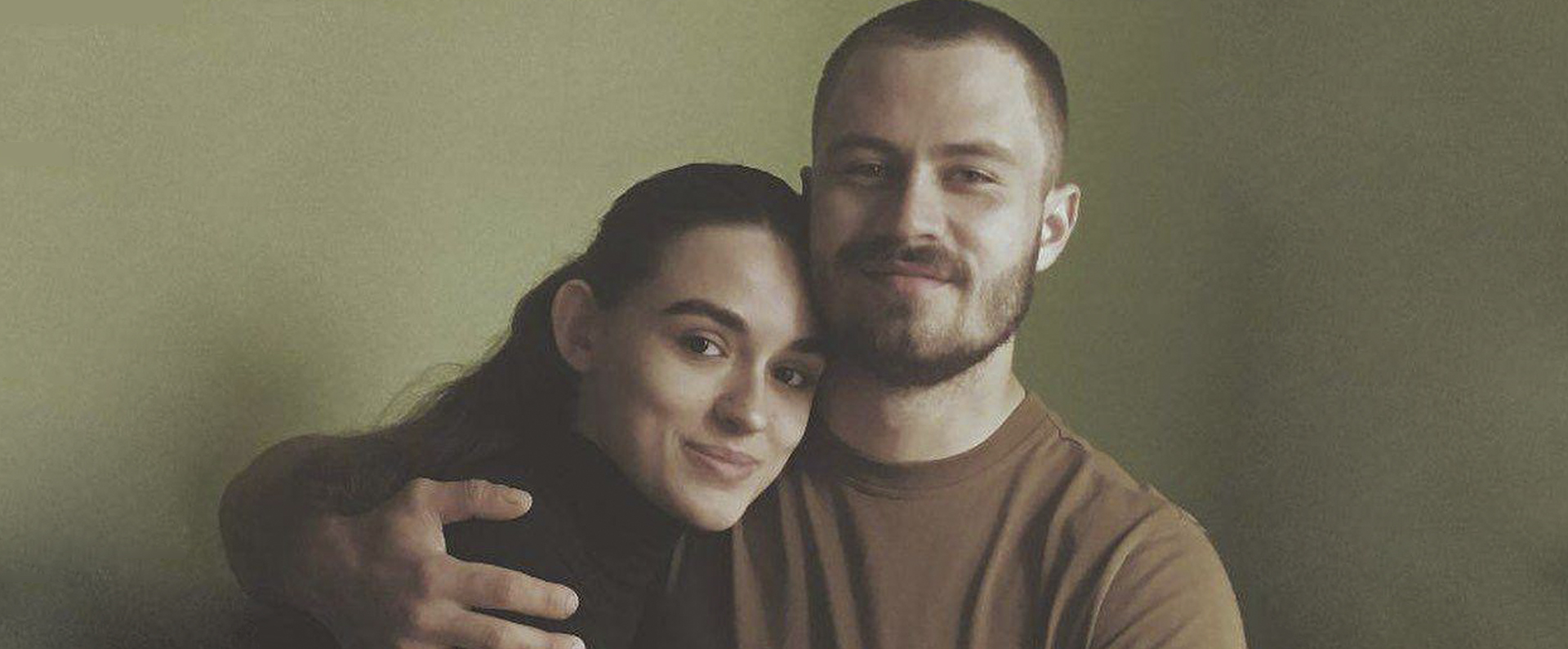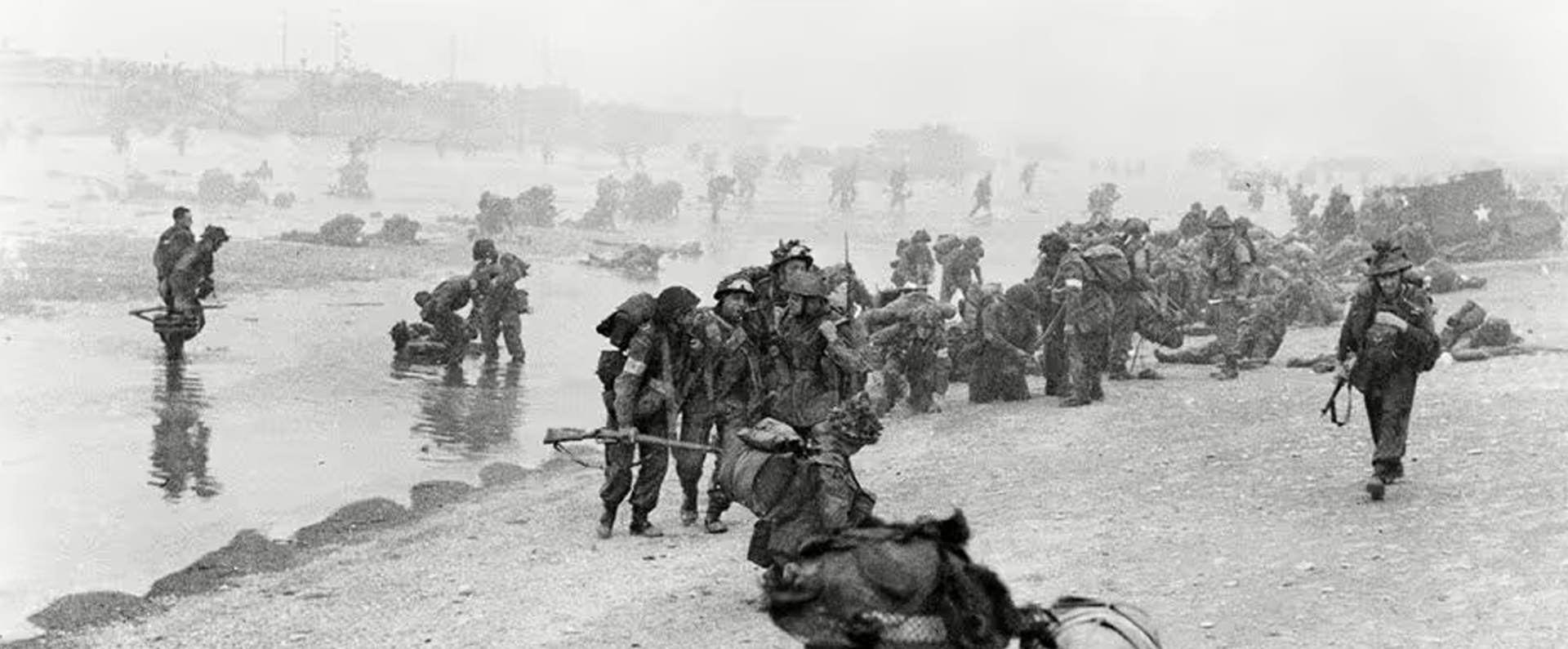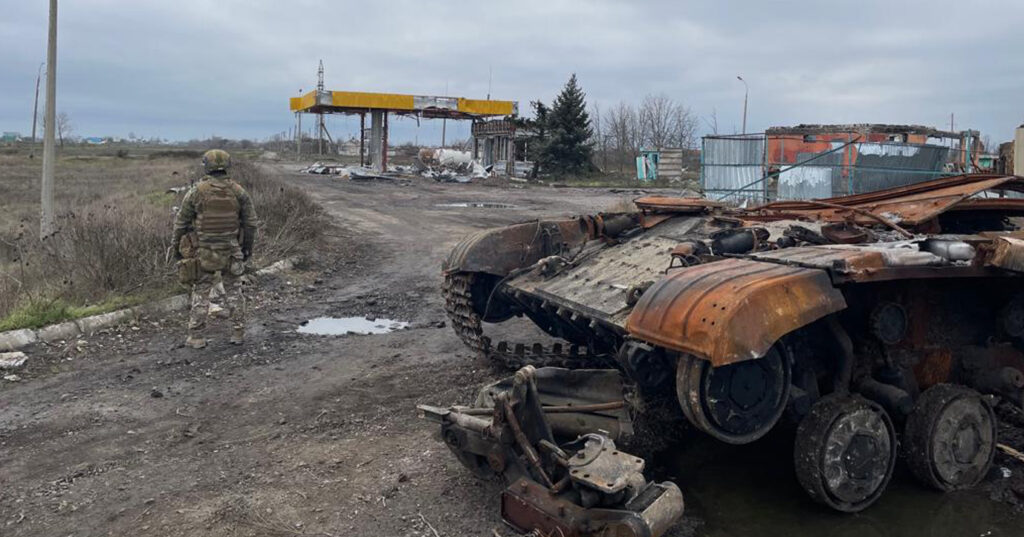
Published on ConservativeHome.com on 28 December 2022.
It was a poignant statement of the resilience of the Ukrainian people. Amidst death and destruction in the village of Luch, close to the frontline city of Kherson, someone had decorated a Christmas tree outside their single-storey house.
Their home had been badly damaged by a missile in a fierce battle last month between Ukrainian and Russian troops, creating a gaping hole in the roof. Yet the Christmas tree, with its colourful tinsel and bright lights, was a symbol of hope for the country’s future.
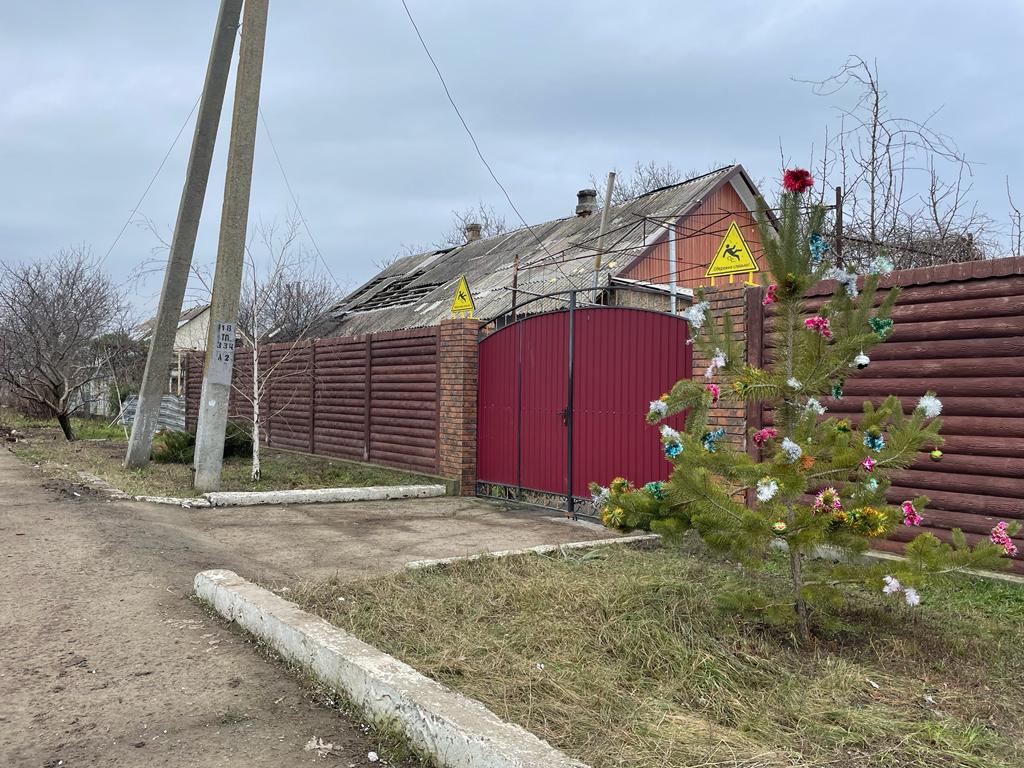
“Amidst death and destruction in the village of Luch, close to the frontline city of Kherson, someone had decorated a Christmas tree outside their single-storey house.” (23/12/22) ©Lord Ashcroft KCMG
The neighbouring village of Posad Pokrovsk had fared no better than Luch. The burnt-out remains of a Ukrainian tank partially blocked the road, abandoned dogs scavenged for food, and an elderly man stacked pieces of wood for his fire on the handlebars of his push-bike.
Half an hour later, accompanied by Ukrainian Special Forces operatives for protection on the third and final day of my trip, I was on the outskirts of Kherson, recaptured from the Russians last month.
Tory MPs Bob Seely, Chris Green and I elected to enter the city but eventually we were told it was too dangerous to go deeper into the city centre. Some 60 Russian shells hit Kherson that day alone, while many more followed the next day, killing ten civilians and injuring a further 68.
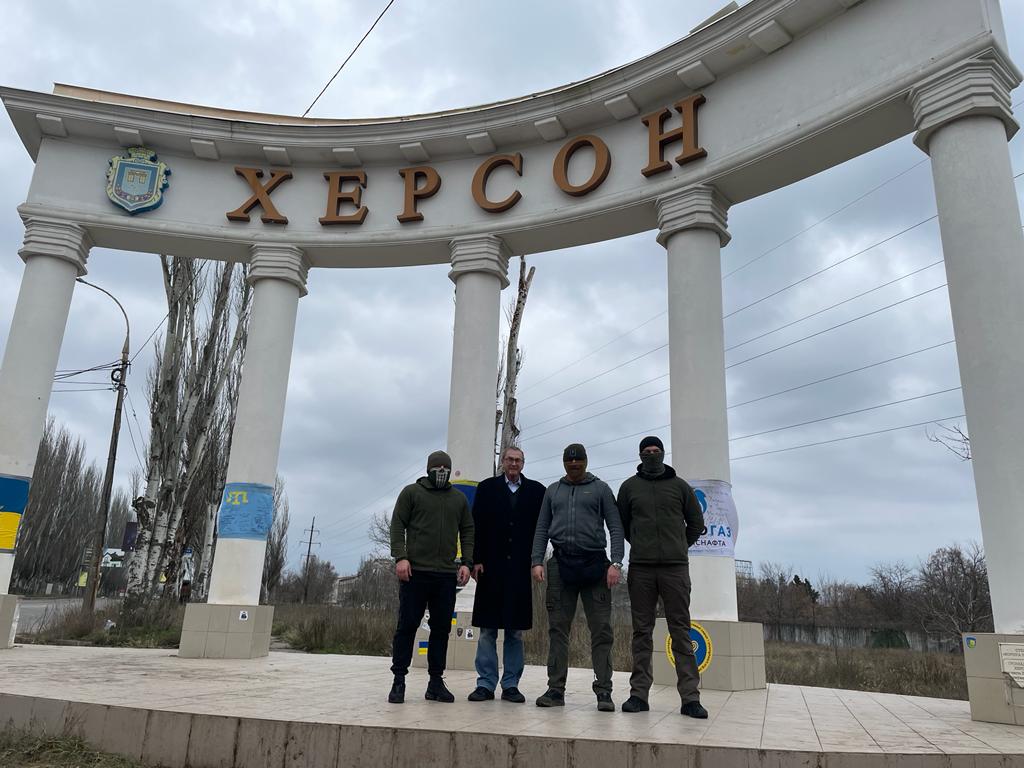
Lord Ashcroft with Ukrainian Special Forces operatives arriving at Kherson, close to the frontline. (23/12/2022) ©Lord Ashcroft KCMG PC
I travelled to this war-torn country in eastern Europe for two main reasons. First, to try to gain a greater understanding of how this nation is coping with nearly a year of all-out war. Secondly, to show my support for Ukraine’s people, who have won my admiration for the way they deal with a terrifying ordeal on a daily basis.
I arrived in Odesa, via a car journey from Moldova, for my three-day visit.
A year ago the city, known as the “pearl of the Black Sea”, had streets full of festive lights, towering Christmas trees in its main squares and a bustling population of nearly one million people.
Ten months after the Russian invasion, every evening Odesa descends into near-total darkness because its electricity supply has been taken out by Russian missiles. The city falls silent too, from 11pm to 5pm, because of a strict curfew.
Within an hour of my arrival in Odesa, I was at the humanitarian centre in the city that has been set up to help residents of all ages with their own needs and those of frontline soldiers.
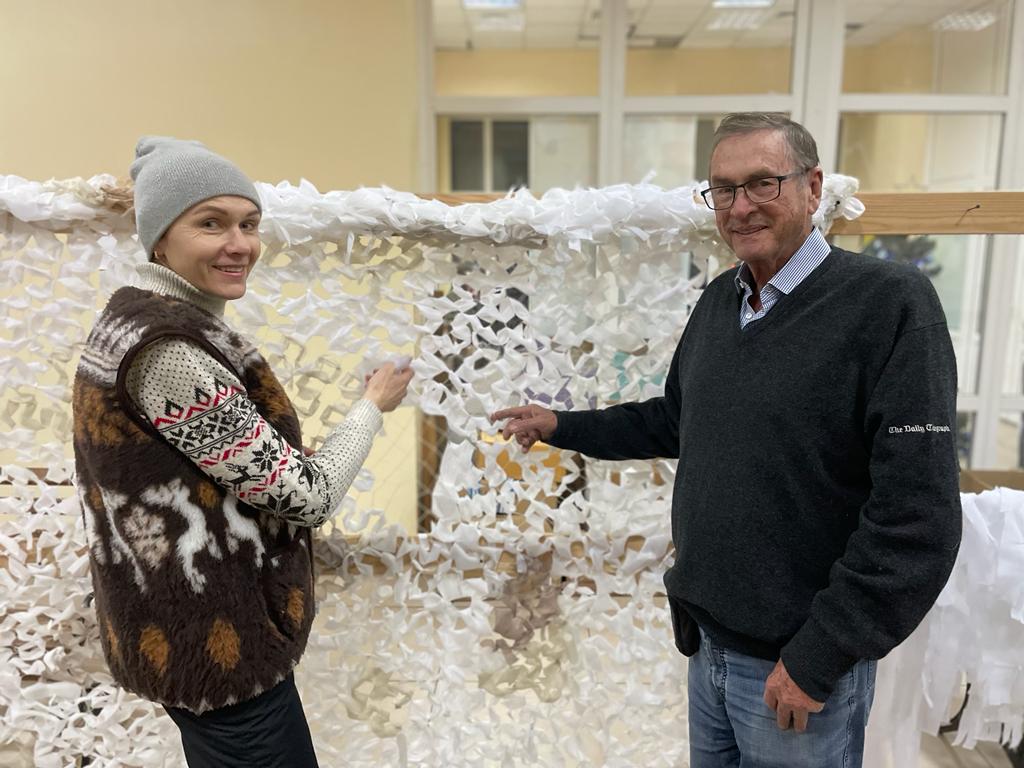
Lord Ashcroft at the humanitarian centre, Odesa, with a woman volunteer making camouflage nets for frontline Ukrainian soldiers. (21/12/2022) ©Lord Ashcroft KCMG PC
Here, I observed Natalia Pinchenkova, 49, and a group of eight other women volunteers making camouflage nets – different colours for autumn, winter, spring and summer – for frontline troops. “We must assist our soldiers,” she said.
Polina Kolupaylo, 80, even presented me with one of the homemade cushions that she and other volunteers are making for the frontline troops and refugees.
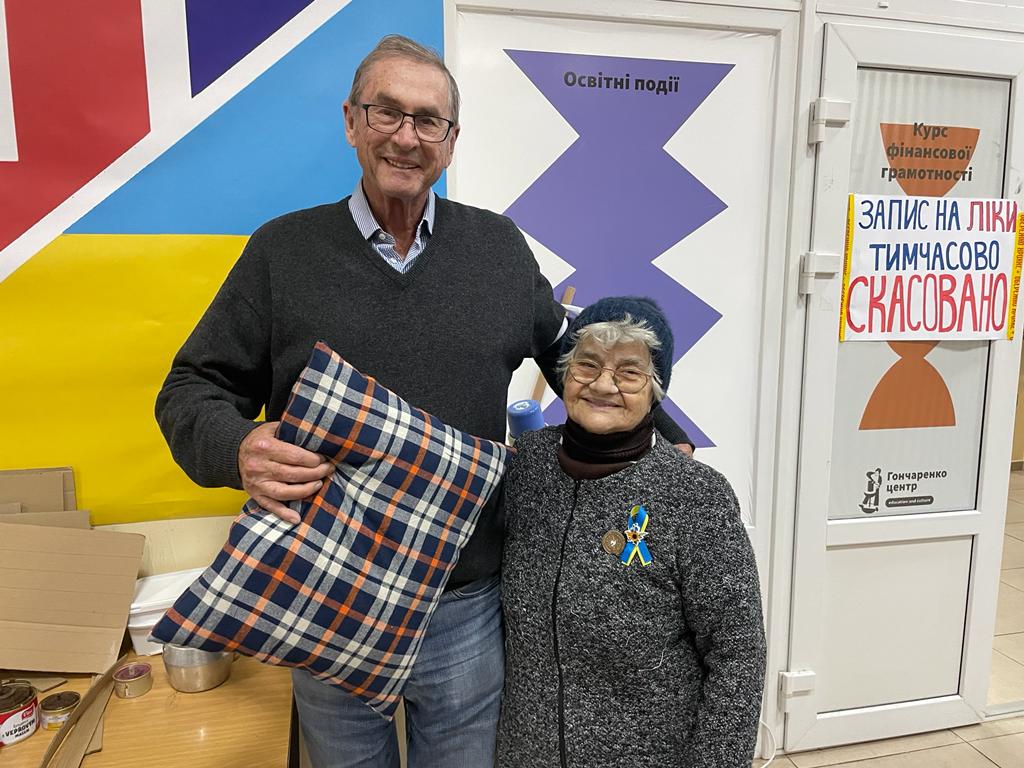
An 80-year-old volunteer presents Lord Ashcroft with one of the cushions she makes for frontline soldiers as a “thank you” for his support of Ukraine. Humanitarian centre, Odesa. (21/12/2022) ©Lord Ashcroft KCMG PC
And I assisted Ludmilla Nasarzevsky, 37, as she made candles from recycled rubbish mixed with paraffin to provide frontline troops with heat and light in the trenches during the dark winter nights. “We want to help our heroes,” she told me.
The humanitarian centre had a room on the second floor, where children of primary school age were making Christmas decorations in a makeshift “classroom”. For two years, their studies have been disrupted by Covid, now for a third year by war.
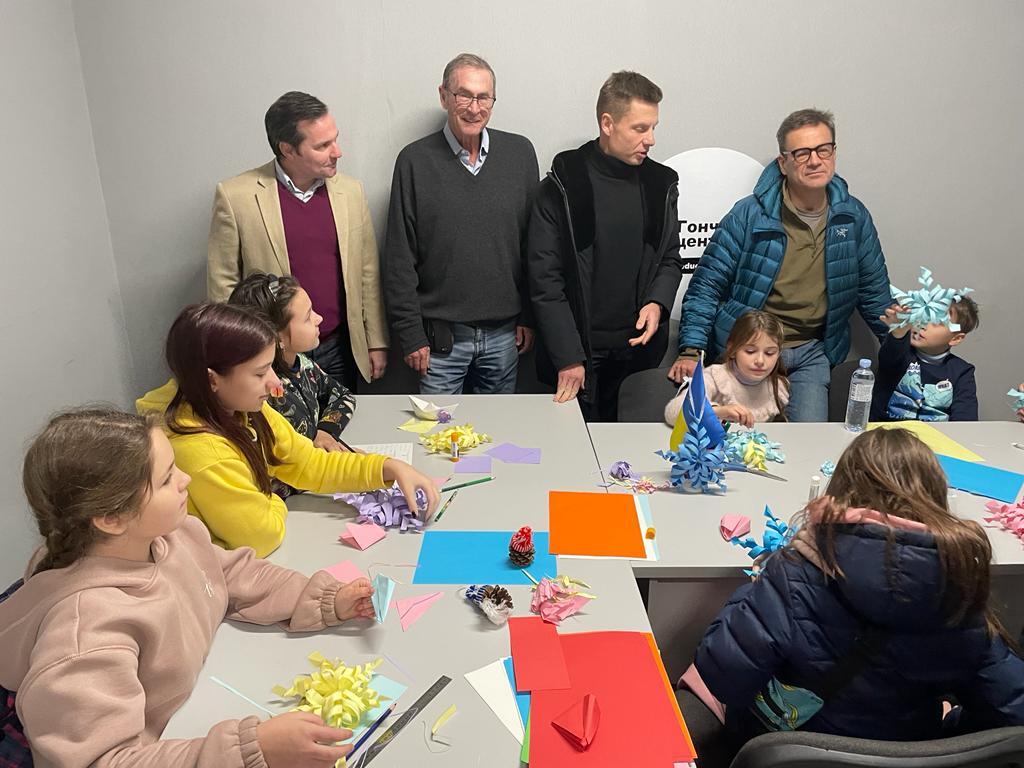
Lord Ashcroft and colleagues at a makeshift “school” at the humanitarian centre, Odesa. (21/12/2022) ©Lord Ashcroft KCMG PC
Some eight million people, mainly women and children, from a population of 44 million have left their homeland but all men aged between 18 and 60 must remain to help with the war effort. Many of the younger men were quickly trained as frontline soldiers despite having no military experience.
Yet, after Ukraine’s recent successes on the battlefield – notably recapturing large areas of the Kherson and Kharkiv regions – its people are more upbeat than at any time since the invasion.
Our host for the first two days of our visit was Oleksii Goncharenko, a Ukrainian MP from Odesa, who is married with two sons aged 16 and four.
He explained to me that everyone is tired of war but Ukrainians are not prepared to accept anything less than every Russian troop being removed from Ukrainian soil – even from Crimea, which was forcibly annexed in 2014.
“I want a total victory against Russia so we never have to go through this again,” he said. “My four-year-old son knows the difference between the sound of incoming fire and outgoing fire. When he hears one, he says ‘Don’t worry, daddy, that’s us firing. We are safe.’ No child should have to learn such things.”
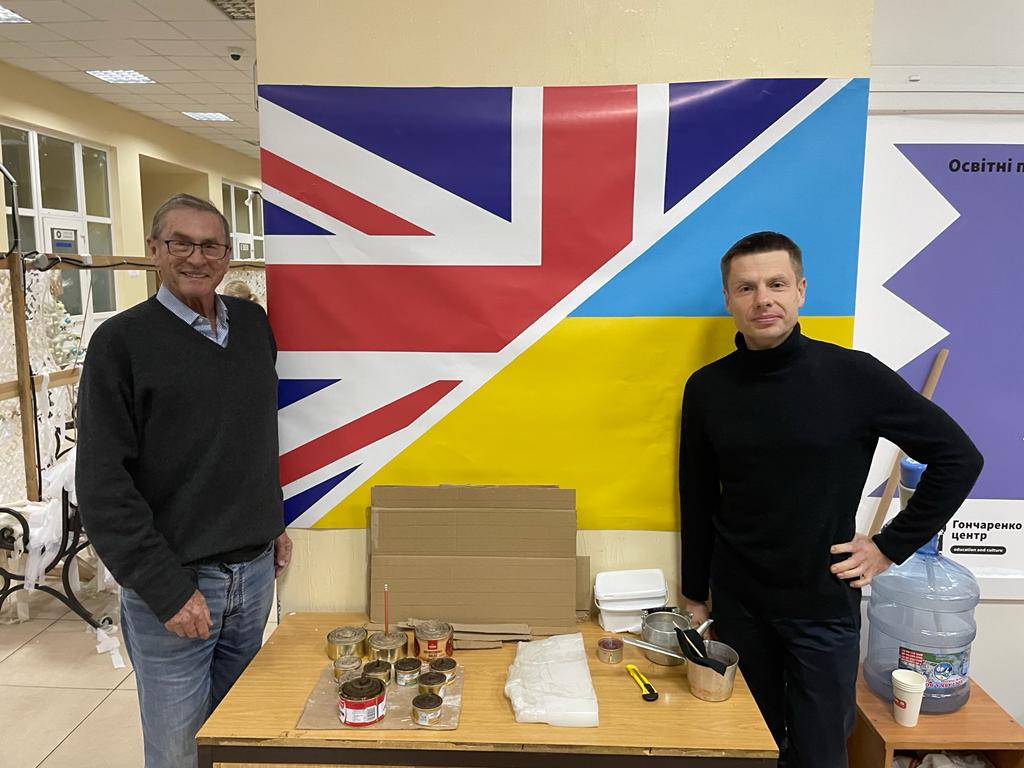
Lord Ashcroft with Oleksii Goncharenko, Ukrainian MP and Odesa resident. (21/12/2022) ©Lord Ashcroft KCMG PC
For five months after the invasion, Odesa’s vast port came to a standstill.
However, I visited it on the second day of my trip and saw dock workers busy loading soya bean on to a Turkish ship using a giant crane.
Under an agreement in July with Ukraine, Russia, Turkey, the United Nations, 174 vessels have shipped 3.8 million metric tonnes of food, including huge quantities of grain, from Odesa through a narrow sea “corridor” to countries all over the world. Two other ports are also allowed to export food.
My respect for those fighting for their lives and their freedom has no bounds and the astuteness of their military leaders has stunned the world, not least Vladimir Putin, the Russian leader.
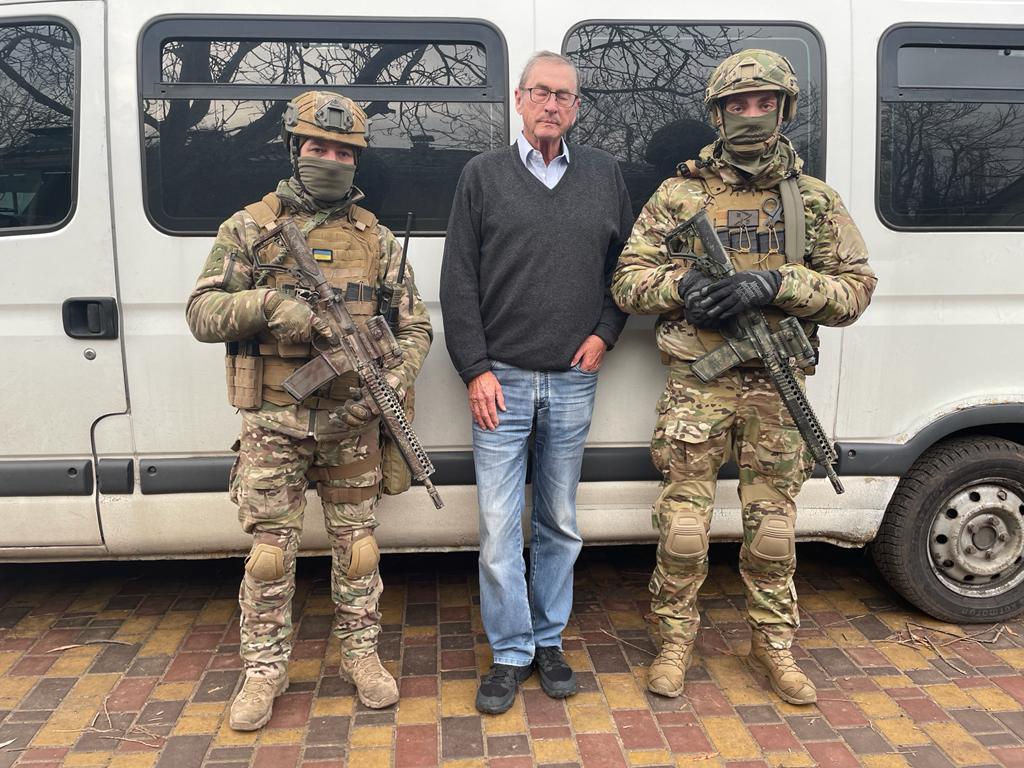
Lord Ashcroft with Ukrainian Special Forces operatives in southern Ukraine. (23/12/2022) ©Lord Ashcroft KCMG PC
At a secret location, I met Major-General Andriy Kovalchuk, head of Operational Southern Command and the man credited with much of Ukraine’s battlefield success over the past two months.
I told him, “For the last year, the British Army has been training Ukraine’s troops. After you win the war, the Ukrainian Army will be training British troops.”
Later the same day, I travelled to Mykolaiv, the port famous in happier times for its shipbuilding industry. In the early days of the war, the city was almost completely surrounded by advancing Russian troops but after ferocious fighting it forced the Russians to retreat.
Before nearby Kherson was recaptured last month, Mykolaiv was attacked by missiles and mortars almost every day, killing 156 civilians and seriously injuring nearly 300 more.
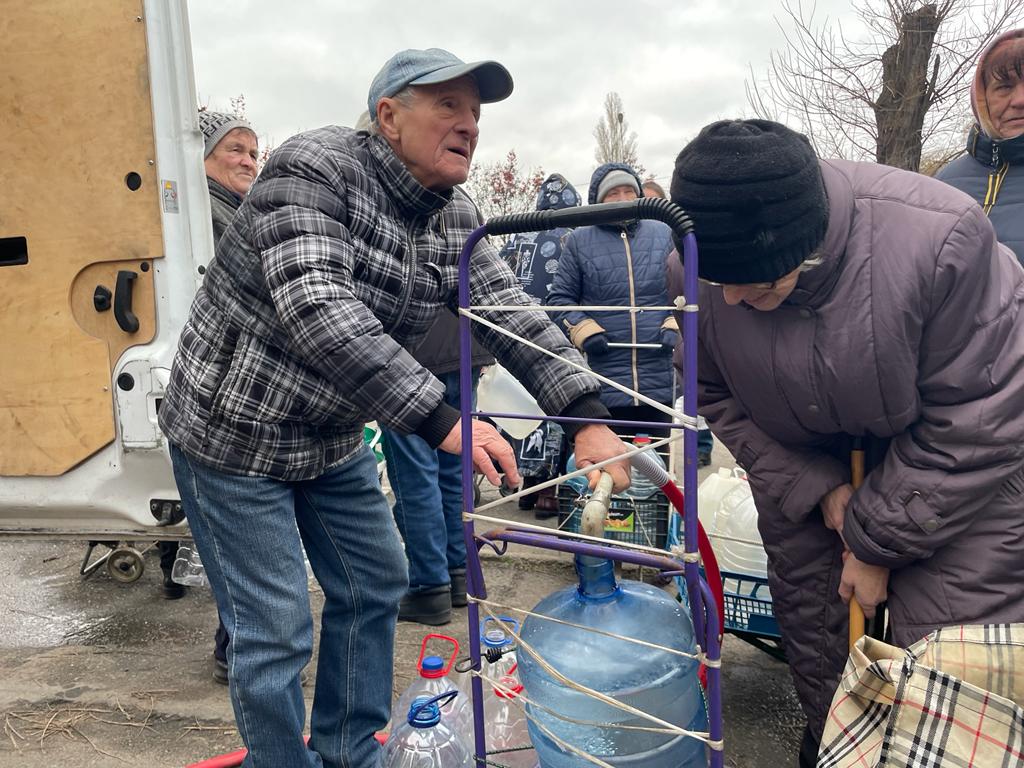
Residents in Mykolaiv queue to collect drinking water from huge tanks in trucks after their pumping stations were destroyed by missiles. (22/12/2022) ©Lord Ashcroft KCMG PC
Yet, since pushing back the Russian army to some 35 miles from Mykolaiv, the city has been hit just twice.
I also met Vitalii Kim, a Ukrainian businessman and politician who, over the past ten months, has picked up a vast knowledge about the military in his role as Governor of Mykolaiv Oblast. On March 29, a month into the war, bombs hit the building where his offices are situated. Thirty-seven of his colleagues died, but Kim survived because he was late for work.
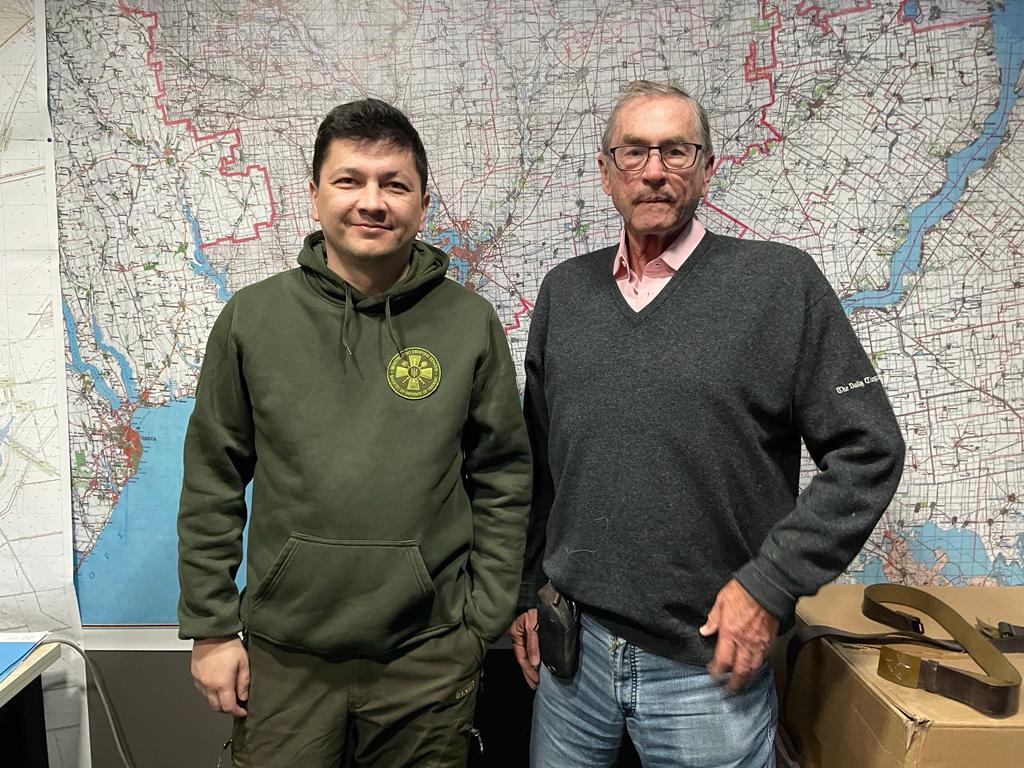
Lord Ashcroft meets Vitalii Kim, the Governor of Mykolaiv Oblast, to discuss the war effort. Taken in Mykolaiv. (22/12/2022) ©Lord Ashcroft KCMG PC
Today Mykolaiv still has huge problems: like many cities, its electricity and water-supplies have been badly affected by the bombing which means that residents, mainly the elderly, have to queue to collect drinking supplies from trucks containing 1,000 litre tanks of water.
Kim, who is married with three children, told me that after the Russian invasion the population of Mykolaiv halved from around 500,000 to 250,000. Most of the city’s businesses were forced to relocate too. “But we will rebuild our economy [after winning the war],” he said.
Equally determined was Alexander Senkevich, 41, the Mayor of Mykolaiv. He told me:
“Russia’s mistake was they came here expecting to be welcomed with flowers and flags [by fellow Russian speakers in the south]. But instead we welcomed them with guns and [their] death.”
Amid the bombings, the power cuts and restricted water supply, there are signs that Ukrainians are trying to live “normal” lives. On my return from Mykolaiv, I was invited to watch a delightful performance of Giacomo Puccini’s Madam Butterfly at the Odesa opera theatre. If ever a cast deserved a standing ovation, it was this one: the show must go on.
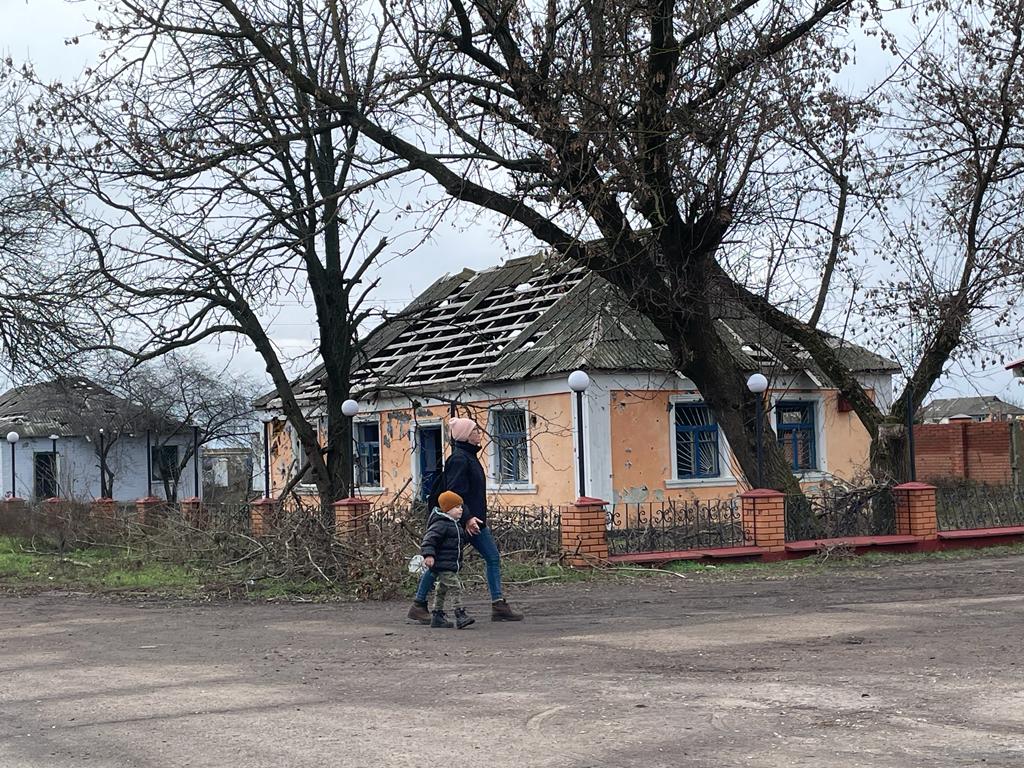
Residents start to return to the destroyed village of Posad Pokrovsk, near Kherson. (23/12/2022) ©Lord Ashcroft KCMG PC
War has claimed a terrible price in the number of human lives lost. Ukraine claims to have killed 100,000 Russian troops since the start of the war. It declines to put a figure on its own death toll: it is high, military sources concede, but less than a half of its enemy.
So how, as we approach the New Year, will the war develop from here?
On the day that I arrived in Ukraine Volodymyr Zelensky, its charismatic president, left the country for the first time since the February 24 invasion. Hours later, he arrived in the US to receive a pledge of a further $45 billion (£40 billion) in US aid.
The US, Europe, and other countries must not abandon Ukraine in its hour of need. One military source told me, “We can and will finish the war if we are given the capability [in weapons] by the West to do so.”
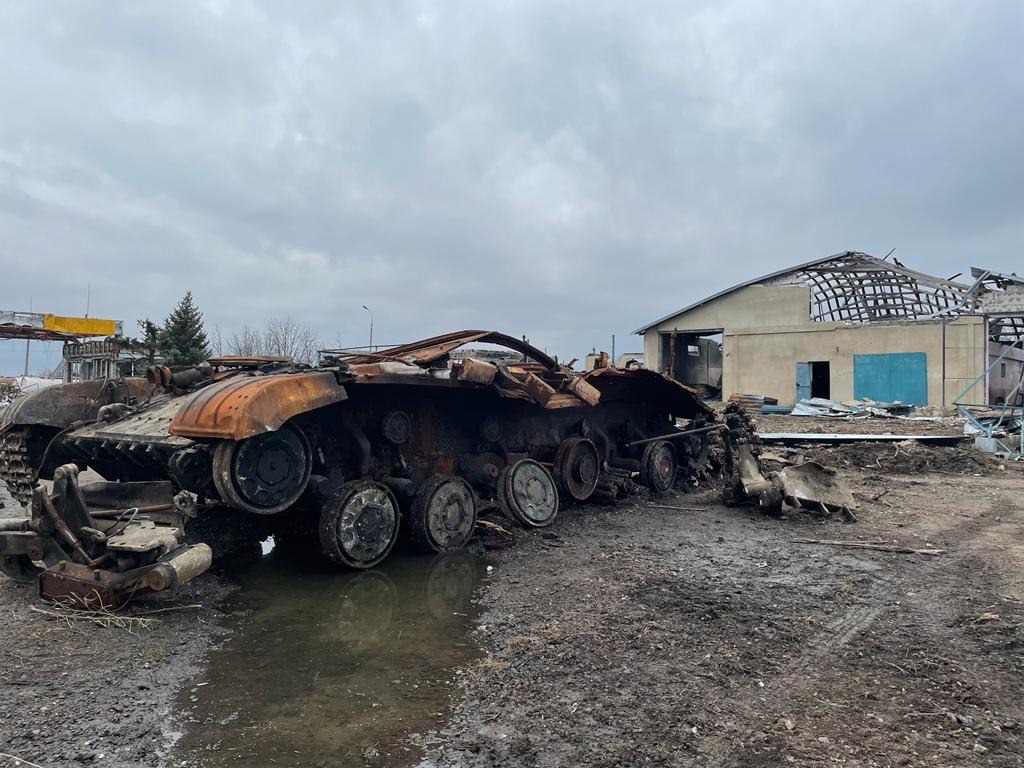
Remains of a Ukrainian T62 tank and other damage in the destroyed village of Posad Pokrovsk, near Kherson. Scene of a frontline battle last month. ©Lord Ashcroft KCMG PC
I strongly believe that the West must not simply supply Ukraine with defensive weapons, such as Patriot anti-missile systems, to protect its residents from attack, but we must also provide a vast amount of modern offensive weapons to strike back at Russia.
Without an increase in arms and equipment, this war could go on for years. Putin cannot afford to lose face by retreating and the Russian leader has revealed plans to increase his Army from 1.15 million combat troops to 1.5 million. The signs are that Russia is preparing for both a New Year offensive and a long conflict.
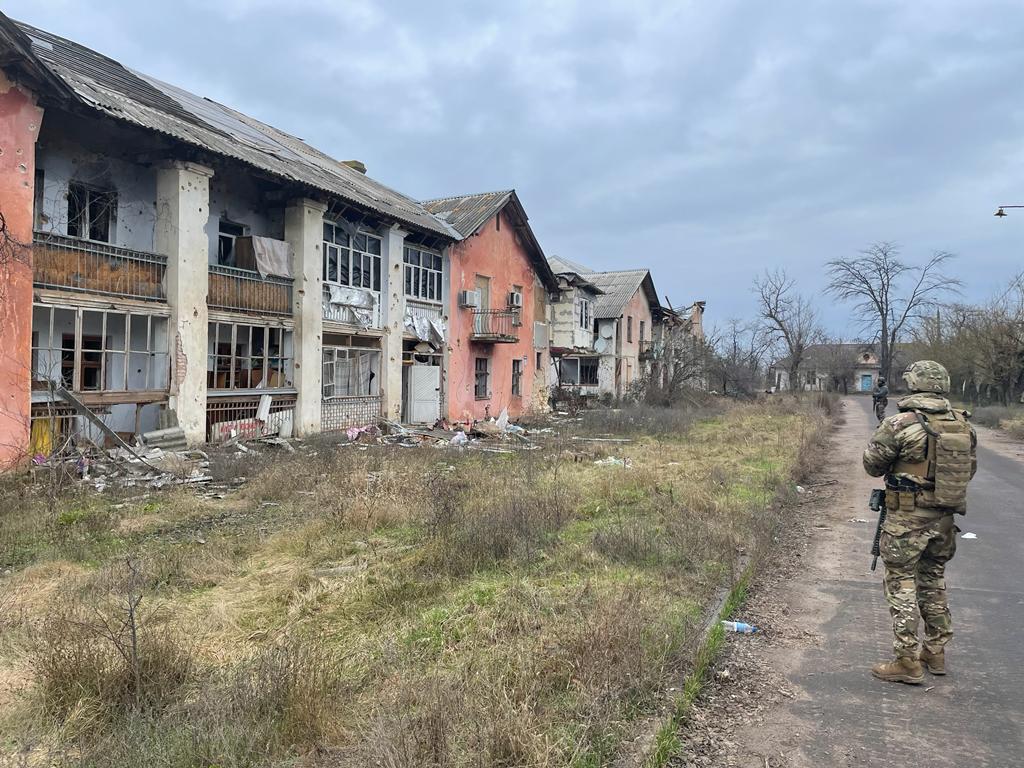
Lord Ashcroft, accompanied by Ukrainian Special Forces operatives, visits the village of Luch, near Kherson. Scene of a bloody battle last month when Russians were outmaneuvered and routed by the Ukraine army. The village is now in ruins. (23/12/2022) ©Lord Ashcroft KCMG PC
There are many Ukrainians who believe that by the spring Putin will have been toppled by his own people. This is not just wishful thinking: history shows that Russians are tough on leaders who cause them endless misery. At present, everyone from the poorest Russian family to the richest oligarch is paying a big price for Putin’s wholly unnecessary and unprovoked war.
I left Ukraine, as I had arrived, by road to the Moldovan capital of Chisinau. As I crossed the border after three days that I will never forget, I felt a mixture of despair, admiration and optimism.
I felt despair that the land-grab ordered by one megalomaniac leader had caused so much hardship for tens of millions of decent people. I felt admiration for the toughness of the Ukrainian people, the military and civilians alike, as they approach the unwanted landmark of a year of all-out war.
But my overwhelming feeling was optimism that, with the West’s help, Ukraine can and will win this war.


